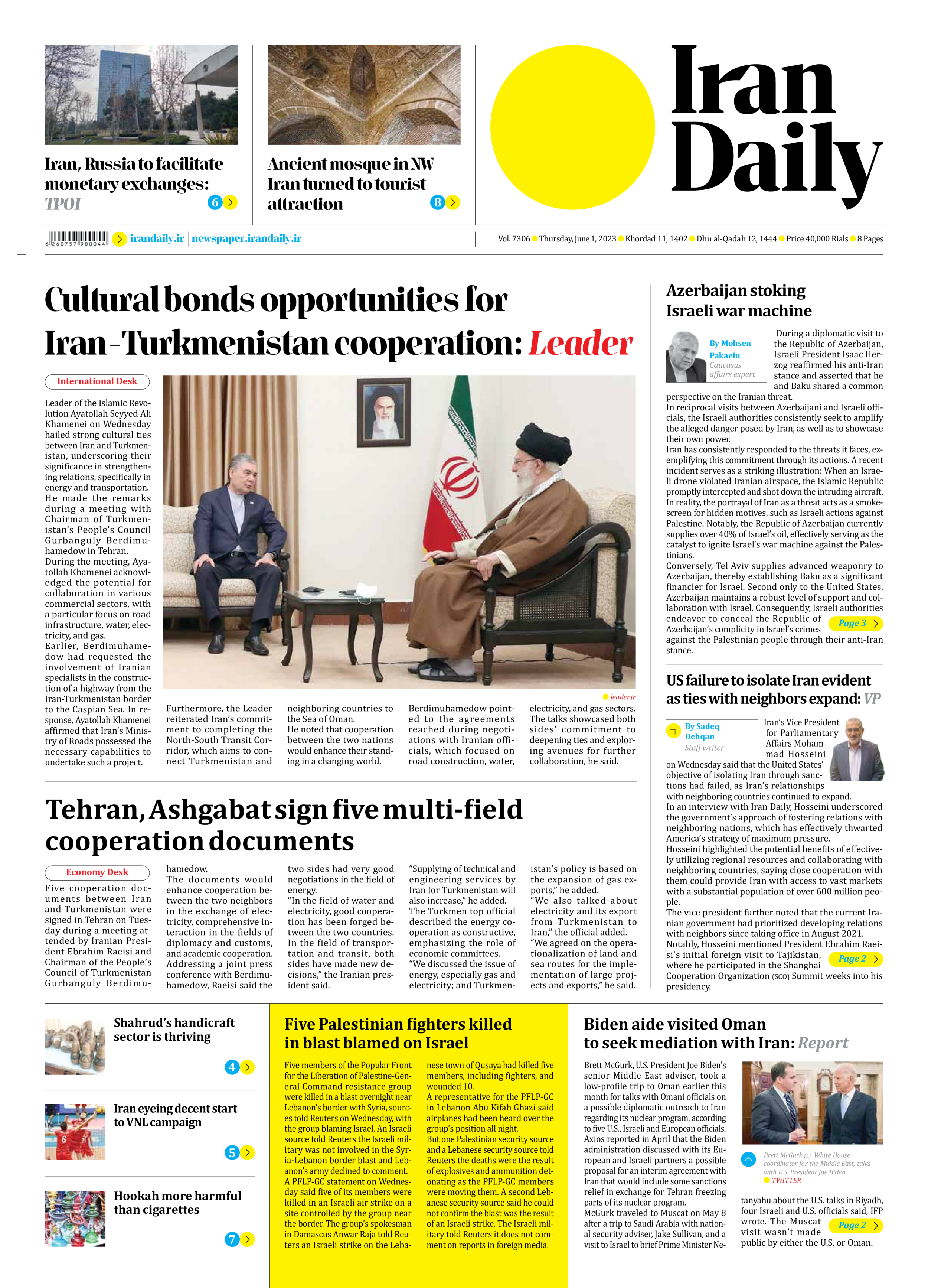
Azerbaijan stoking Israeli war machine
By Mohsen Pakaein
Caucasus affairs expert
During a diplomatic visit to the Republic of Azerbaijan, Israeli President Isaac Herzog reaffirmed his anti-Iran stance and asserted that he and Baku shared a common perspective on the Iranian threat.
In reciprocal visits between Azerbaijani and Israeli officials, the Israeli authorities consistently seek to amplify the alleged danger posed by Iran, as well as to showcase their own power.
Iran has consistently responded to the threats it faces, exemplifying this commitment through its actions. A recent incident serves as a striking illustration: When an Israeli drone violated Iranian airspace, the Islamic Republic promptly intercepted and shot down the intruding aircraft.
In reality, the portrayal of Iran as a threat acts as a smokescreen for hidden motives, such as Israeli actions against Palestine. Notably, the Republic of Azerbaijan currently supplies over 40% of Israel’s oil, effectively serving as the catalyst to ignite Israel’s war machine against the Palestinians.
Conversely, Tel Aviv supplies advanced weaponry to Azerbaijan, thereby establishing Baku as a significant financier for Israel. Second only to the United States, Azerbaijan maintains a robust level of support and collaboration with Israel. Consequently, Israeli authorities endeavor to conceal the Republic of Azerbaijan’s complicity in Israel’s crimes against the Palestinian people through their anti-Iran stance.
Presently, Israel finds itself isolated on multiple fronts. It confronts unprecedented internal protests and faces widespread international condemnation following its strikes on the Gaza Strip and the desecration of the Al-Aqsa Mosque. In order to divert attention from its domestic and foreign policy failures, Israel employs psychological and propaganda warfare tactics against Iran.
Several Arab nations, which had been pursuing normalization with Israel, have now become hesitant, leaving Azerbaijan as Israel’s sole partner within the Muslim world.
Consequently, the Islamic Republic of Iran possesses the capability to exert pressure on Baku through the Organization of Islamic Cooperation (OIC) by advocating for the suspension or even expulsion of Azerbaijan from the organization. This leverage arises from the fact that the OIC’s mission explicitly endorses opposition to Israel and support for Palestine.
Simultaneously, as Israel grapples with regional isolation, Iran garners attention and favor from regional states. Tehran’s position is further fortified by the ongoing de-escalation efforts in West Asia. These developments significantly compound Israel’s concerns.
At the same time, the Republic of Azerbaijan also finds itself isolated within the Caucasus due to its declared intentions to launch an invasion on Armenia, which has drawn severe criticism from the international community, including Russia. Essentially, Baku has been ostracized from the regional dynamics of the Caucasus.
Instead of relying on Israel as a means of overcoming its isolation, Azerbaijan would be wise to mend relations within the Caucasus region and seek to resolve disputes with Armenia while upholding territorial integrity and refraining from border alterations. Dependence on Israel will only serve to deepen Baku’s isolation within the region and the broader Islamic world.







